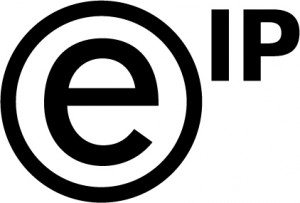Decision time
During the penultimate term of my Natural Sciences degree at Cambridge, and with a scholarship to study in Japan planned for the following year, I visited the university careers office. The monopoly of recruitment propaganda by the financial services industry had left me thinking that all roads lead to the City.
The careers adviser explained, however, that with patents, I could make use of my physics while taking up new disciplines of law and letter writing. The combination appealed to me and I now work as a Trainee Patent Attorney at J A Kemp & Co in Gray’s Inn.
I remember being told at my interview that I would do the same job on my first day as I would on the day I retired. I hope I’ve been slightly more productive than that may suggest, but I certainly enjoy the gradual development and evolvement of my potentially lifelong career. As my level of responsibility grows, so does the variety of my work, though patent prosecution and drafting remain ever present.
Aspects of the job
When I’m asked about what I do for a living, I often talk about how varied my work is. Each day at the office I will deal with three or four cases, each one directed to a different invention, probably in completely contrasting fields.
As an agent representing our clients (e.g. a technology company who want to protect their ideas) before the Patent Office, my role is two-fold. To our client, I explain, and suggest ways of overcoming, a patent examiner’s objections, while to the examiner, I convey why our client’s invention should be granted a patent.
To do this, the skills that I need day to day are quick understanding of technology from a written description, and communication of my advice or argumentation in an accurate and comprehensible manner.
Time management and improving efficiency are important aspects of the job, a fact I realise more now than when I started; I’ve certainly become a lot more organised. The job involves writing a lot of letters. In addition to written communication, there is also the opportunity to represent a client in person. So far, I’ve had one trip abroad to Munich to represent a client at a hearing at the European Patent Office.
An average day
Sitting in the Electronics and Engineering department, I handle a broad range of files relating to anything from optics to computing, and the level of technology can range from pet beds to integrated circuits. With such wide ranging subject matter, I’m not expected to be an expert every time; that’s what the inventors are for.
On my desk currently are papers about manufacturing computer chips, a nitrous oxide sensor and an ink-jet printer. After two and a half years in the job, I still enjoy the intellectual challenge each day brings and would recommend the profession to friends.
The work is essentially individual in nature with little interaction, before discussing my letters with a partner. The flexibility this gives me in managing my own workload, together with the flexitime system we have in place, means I can maintain a good balance between work and the rest of my life.
While knowing a foreign language is by no means essential, I have found the Japanese I picked up before joining to be occasionally useful for deciphering poorly translated patents.
Training
I’m currently part-qualified, which is like describing a second year undergraduate as part-graduated and I’m a year away from sitting my qualifying exams.
Exam preparation has to be done outside work hours, but J A Kemp & Co’s first time pass rate, which is excellent, gives me confidence of success. We receive a comprehensive series of in-house tutorials that will give me a good chance of ‘graduating’ next year. Until then, the close supervision I receive for each piece of work aids my progress.
I would recommend training to become a patent attorney, as a patent attorney’s salary compares well to other areas, while the sensible hours mean you have time outside the office for a social life.








